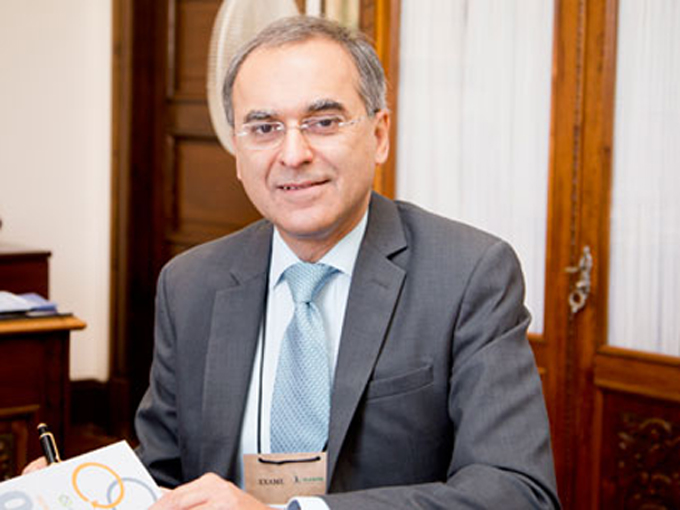From May 14th to May 16th, 2014, Luiz de Queiroz College of Agriculture (ESALQ) held the sustainability event “Agrisustenta 2014”. The convention conducted by the Brazilian publications Exame and Planeta Sustentável and supported by ESALQ aimed at discussing the convergence between sustainability and agribusiness.
The talks covered the main topic Tropical Revolution in the Crops, aiming at spreading agribusiness practices in harmony with natural biomes and ecosystems. A number of methods that make this goal become a reality are already being used in the industry and are discussed and shared among executives, public officials, scientists, consultants and national and international experts. Cases, panels and discussions were presented by representatives of institutions such as the University of São Paulo (USP), University of Campinas (Unicamp), Brazilian Agricultural Research Corporation (Embrapa), Institute for Agricultural and Forest Management and Certification (Imaflora), Abril Press and others.
The Indian economist Pavan Sukhdev, author of the report “The Economics of Ecosystems and Biodiversity” and the book “Corporation 2020,” gave a lecture entitled “How to value biodiversity for agriculture?” at the opening ceremony of the event.
During an interview, Sukhdev, one of the world's authorities on green economy, spoke about his perceptions regarding biodiversity in the Brazilian agriculture, as well as the urgent need to take new steps towards sustainability in agribusiness.
Which countries have the potential to produce financial capital from natural capital?
There are two different natural capitals: living natural capital and dead natural capital. The overall valuing of these resources is possible, and this is what is done the Middle East for oil, which is a dead capital. There is also a living capital consisting of ecosystem services that naturally support agriculture. The current and future value of ecosystems is called natural capital. You can acknowledge this capital in several countries through assessments by means of satellites, but also by their policies.
Among powerful nations we highlight Indonesia, where the loss of natural capital is a major concern, or India, with severe conflicts between the use of human and natural capital, or Brazil, where nature is abandoned but there is great pressure in relation to climate change, impact on tropical forests and savannah biomes among others, as well as pressure related to agriculture. I believe that all of these countries need to give proper attention to natural capital. The difference is that some measure and value this capital, while others do not. I hope the tropical revolution in the crops can contribute to mitigate this situation.
How to value biodiversity for agriculture?
Ecosystems produce value for agriculture, such as pollination agents and nutrient cycles, and this is not accounted for in our economic systems. This values provided by our ecosystems and biodiversity to agriculture are not quantified nor measured or managed. “If you can't measure it, you can't manage it”, and that is actually happening now.
On the other hand, the impact of agriculture on ecosystems, soil fertility and agricultural activity losses are not being measured either. Hence, environmental and soil degradation is occurring. At the same time, pesticide and fertilizer usage on agriculture for food production impacts human health, and this is also being neglected.
Therefore, there is a wide range of external factors with which today's farmers must deal, in addition to the fact that they have the most underpaid jobs nowadays.
What can be done to bring agriculture closer to sustainability while ensuring the world is fed in a sustainable way?
Agriculture as a whole is a business, no matter if we are talking about a global enterprise or a small farmer. There are over 400 million farmers with properties under two hectares. Such farmers employ 1.3 billion people, making small-scale farming the world's biggest employer.
We cannot employ 1.3 billion people in any other system, so it is necessary to ensure small-scale farming is successful. The work developed by the small farmer needs to be promoted instead of ignored. This can be done by increasing small farms' production and putting more money into the hands of those most in need.
Production increment can also be done by increasing food productivity and availability, since 80% of the food produced on small farms go to food-insecure regions — an often discussed issue. Even though small farms' production account for much of the supply in these regions, their role has not been included in such discussions.
How can small farmers receive proper attention so that they are recognized as a solution to global sustainability in agriculture?
The valuation of small farms is a recent process in Brazil and can also be seen in other countries like India, Tanzania, South Africa, Pakistan and Southeast Asia, where small-scale farming plays a key role. Small-scale farming production increment is something we need to pursue. The good news is that there are many scientific publications and studies showing that this problem can be solved when the correct methods and technologies are applied.
A study conducted with more than 20 million small farms in over 50 developing countries showed that the use of these environmentally friendly techniques increased agricultural production in about 79%. Therefore, the answers are right in front of us.
The problem is that this study was conducted in 2006, but despite being in an agricultural school, perhaps you have never heard anything about it. This happens because people generally focus on different solutions, such as enhancing production and increasing farm land size, which leads to losses of over a billion jobs.
This is not just about feeding the planet, it is also a social issue: job creation. Basically, there is one single feasible way to solve this issue, which is increasing agricultural production on small farms, and so it is.


